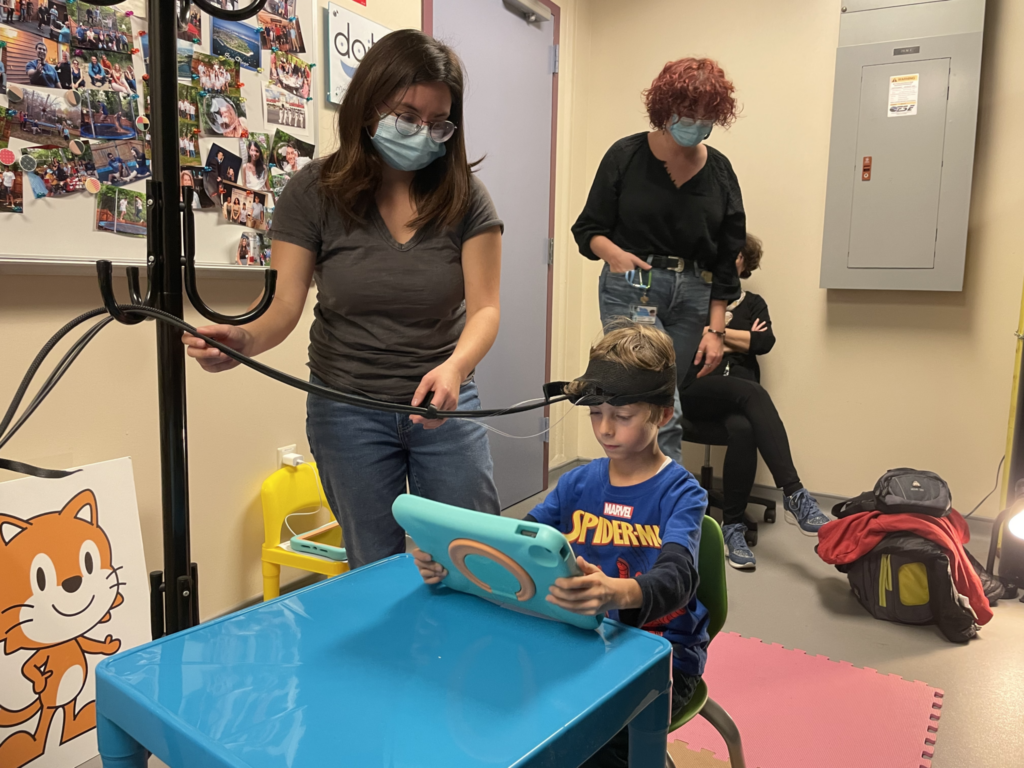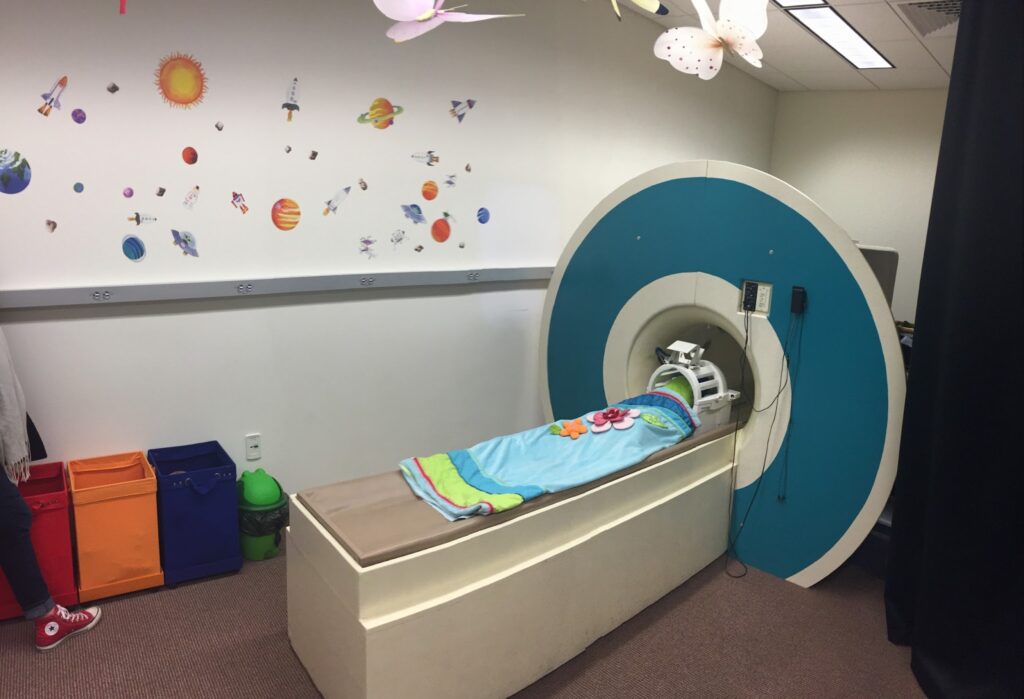
The push for early childhood education to promote the teaching of coding and computational thinking exists in tandem with an overall lack of basic scientific knowledge on the neural and cognitive mechanisms involved in the activity of computer programming. DevTech’s approach, which understands coding as another language since both are symbolic representations that one can use to tell stories, express themselves, and learn about themselves and the world around them, opens up questions about similarities and differences between mechanisms involved in both natural and artificial languages. This basic research can inform the development of curriculum and pedagogies.
DevTech has previously run two neuroscience studies with different tools and partners. In 2018, in collaboration with partners at MIT, DevTech ran an experiment using fMRI aiming to determine whether coding with ScratchJr activates the language areas of the brain. In 2023, in collaboration with partners at Tufts, DevTech ran an fNIR experiment to attempt to answer the same question. This year, DevTech is piloting a study using EEG, a neuroimaging tool that measures brain activity directly.


Related Papers
Ivanova, A., Srikant, S., Sueoka Y., Kean, H., Dhamala, R., O’Reilly, U., Bers, M., Fedorenko, E., (2020). Comprehension of computer code relies primarily on domain-general executive brain regions eLife 2020, DOI: 10.7554/eLife.58906
Fedorenko, E., Ivanova, A., Dhamala, R. & Bers, M.U. (2019). The Language of Programming: A Cognitive Perspective. Trends in Cognitive Sciences, 23(7), 525-528. doi:10.1016/j.tics.2019.04.010
Ivanova, A., Srikant, S., Sueoka, Y., Kean, H., Dhamala, R., O’Reilly, U. M., Bers, M. U., & Fedorenko, E. (2019, October). The Neural Basis of Program Comprehension. Poster session presented at the Society for Neuroscience 2019, Chicago, IL.
If you are interested in participating in this research initiative or learning more about it, please contact emily.nadler@bc.edu.
